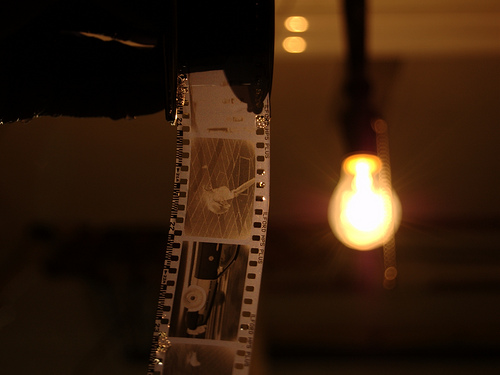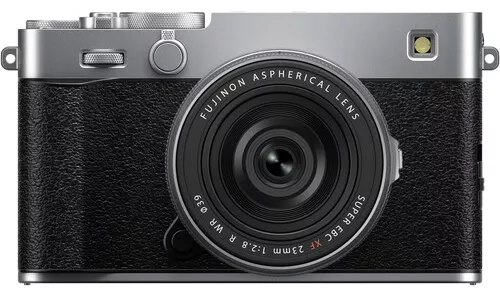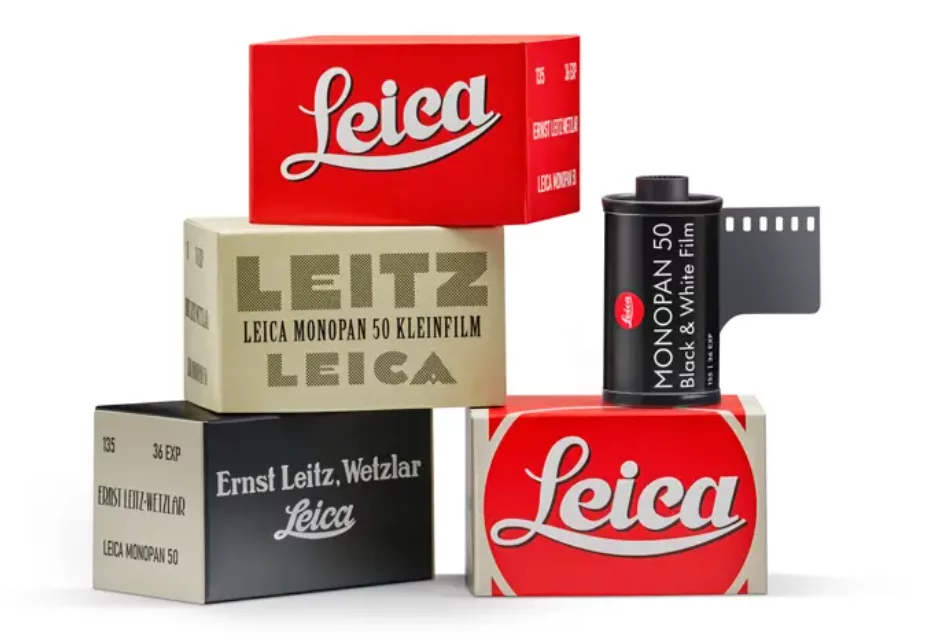Over the last 150 or so years that photography has been in our lives, it didn't undergo much change until twenty years ago. While film sizes and developing techniques had minor changes, it wasn't until the 80's when the first glimmer of the future of photography started to appear with auto-focus camera's and faster frames per seconds. Then digital came and has forever changed our lives.
Here's a look at what predictions could be forthcoming in the future of photography, some more realistic then others, all are somewhat plausible though.
In camera HDR.
High dynamic range photography has been more of a curse then a blessing as most photographers see it. Most over-use the ability and create more art images compared with a true photography, layering and layering until what they have more closely resembles a digitally created image, not a photograph. If a camera can have the ability to do HDR on the fly, in camera it could open up the door for better, more equally exposed images.
Unlimited ISO. High end DSLRs now seem to be able to shoot in near total darkness, however the blacks still tend to go green in hue. Working towards better chips that don't get as hot will lead to better night images without flash.
Simulated grain.
Grain is not a bad thing! 25 years ago photographers chose film based on the grain type, fine, coarse, etc., and the location being shot and how the subject was being shot. Something about the grain structure in a 3200 speed film shot at noon on a sunny day produced some amazing results. Digital has noise which is different from grain, so the quest has been to eliminate it; all fine and good. While post processing techniques can add grain to images, having it in camera would cut down on post processing and allow more creativity while shooting.
3g equipped cameras. There are already Wi-Fi enabled SD cards, however you must be within a certain distance of an established network with a properly configured router for the transfer of files to a computer work. Having 3g built into cameras, DSLRs and point and shoots would allow for instant uploads to blogs, photo sharing sites and social media networks.
GPS equipped cameras.
GPS attachments are available for a few of the higher end DSLRs abut the ability to geo-tag your images would allow for better sorting during post-production.
Polaroid film comes back to life. The original instant feedback medium prior to every camera having an LCD monitor on the back was Polaroid. Hopefully Polaroid will be coming back to life shortly and the company will establish more consumer friendly cameras to utilize instant print technologies. They can be immensely fun and a nice distraction from digital now and again.
Universal batteries. For whatever reason, camera manufactures like to create a new battery type for each and every camera they make. There is virtually no difference in quality between the original Canon 5d battery and the 5d mkII battery, other then a huge price increase and very limited availability when the camera was initially released. One battery shape for all DSLRs and another for point and shoot cameras will allow third party manufactures a chance to make better, cheaper batteries and cross compatibility for all camera owners.
The everything lens.
The dream is a fast zoom lens that covers wide to telephoto, is compact and doesn't weigh a ton. Think 15-250mm f/1.8, 2.5″ long and under 10oz. in weight, with macro capabilities. Every photographers dream!
The future of photography will change, that much is fact, but will manufactures listen to the demands of their customers?










20 Comments
agree!
Nice post. I agree HDR is a blessing and a curse! Unlimited ISO would probably be useful but I am sure people will shoot at 200000 iso (random number) just cuz.
On regards to the lens, im sure that the technology is already here to make it possible, BUT if they start producing them then they'll be no profitable business for anything else lens related, its all a monopoly game, lol Oh well, lets just wait and see what happens, hopefuly and wont cost us an arm and a leg, oh and an eye and an ear etc…, lol and awesome forthe rest of the ideas.
I suspect that polymer technology will have an impact on lens design & that glass will be replaced by electrostaticly configured glass, which will allow for the 'everything' lens.
Electrostatic technology will eventuall allow the photographer to dial up a fish-eye through to long range zoom, macro to telephoto & probably even dial up a filter as well.
I think the fundamental trend will be that software (first in post-processing and then some years later) will increasingly compensate for the shortcomings of cameras and photographers. This will allow for smaller, simpler, cheaper cameras – even though by today's standards they'll contain a specialized computer.
Examples of use will include:
User selectable correction of focal plan (after shooting).
Repositioning of the photographer's position after shooting (proof of concept of this has already been demonstrated.).
Grain will be selectable – from none to golf ball size.
3D images from single lens cameras.
Still images will actually be short videos (think Hogwarts paintings).
Resolution will be increased by stacking images in camera.
All distortion and CA will be removed as a matter of course.
On the other hand improvements in physical cameras will slow. I would not expect the “everything lens” (though much of this will happen in software), nor universal batteries (unless regulators step in like they have with mobile phone chargers).
We're already seeing HDR functions in compact cameras such as the AgfaPhoto OPTIMA 104 and 105.
It seems manufactures like to test out some of these more quirky features in their compacts first (GPS as been an addition to a handful of 'bridge' cameras).
I'd have to disagree about the difference between the 5D and 5DMkII battery power but good point. Why can't we have a retrofit upgrade?
Very interesting – I definately like the idea of the 15-250mm f1.8 lens – wow! if only.
I think this is a myth “High dynamic range photography has been more of a curse then a blessing as most photographers see it. Most over-use the ability and create more art images compared with a true photography, layering and layering until what they have more closely resembles a digitally created image, not a photograph.”
Yes, there is a lot of bad, but a lot of landscape photographers use is very well, so well that you won't see it. So it's hard to know what there are the most of really. It's like with any new technique, it's over used, then it becomes just another tool to get what you want.
The 15-250mm 1:1.8 is a pipe dream, it won't happen before some new ways of manipulating light is discovered 😛 When I talk about the dream lens I usually say 10-300mm 1:1.4 😛 Same thing applies of course 🙂
How photography will continue to change is impossible to know, but I'm sure it will be good. And lots of the old ways (already old now and old in the future) will remain as well.
agree!
I hope it doesn't change to much i really enjoy my bag full of goodies, all with a specific purpose and function.
Your forgot OPEN SOURCE CAMERAS.
the future of photography (as of now) will be the past…the basic. 10 or so years on will be another story. Art goes in cycles, music the most apparent. photography being one form will have no other course to take
doing a school paper what do ya’ll see for the economic future for the photographer
this should be retitled ……gear/equipment/gadget predictions.
You have mentioned nothing about content or industry economics…
And a return of Polaroid???? You must be kidding.
This article lacks any real vision farther than a year or two out. As well, there is not thought to software innovation.
Fast lenses are largely a holdover and largely irrelevant when you can now just keep jacking up the ISO. In fact. why would you want to keep limiting you DOF?
There will always be new games such as HDR. They serve the industry very well… to keep moving product by giving consumers new tricks and models of invention to aspire to and evolve.
As for the battery play. It’s a game unto itself as it stands as another revenue stream. If anything I could see batteries worsening in durability.
The big game changer was simply (which is huge of course) digital and the accompanying elements. The next 10 years will be sub-fragments founded on this technology. Motion on top of stills, CGI on top of motion, everything will become a wireframe which will be finished with skins as needed.
Increasingly we will leave behind the physical space for capturing content invented and imagined.
We’re already on the full postmodern “Simulacre”
And so on, and so on, etc.
Very interested to hear your forecasts on where you think the future of making money in photography will go for commercial and art photographers.
In regards to Polaroid, have you checked out https://www.the-impossible-project.com/ ?
I don’t see how any self respecting artist would allow himself to be so far removed from the process of creating. In the art of creating an image, the painter is the closest to his work and the most skillful. On the other hand,the fully automated digital camera user with photoshop is the furthest. The old school photographer that needed to meter his light correctly, choose the proper film for the look he wanted and the adjust everything on his mechanical camera himself and develop the film and picture is somewhere in the middle, there are no “undos” in this process. The more you allow technology to sandwich itself between you and the art, the less unique it is and less personal. If you choose this lazy route with all of it’s tacky immemities like HDR and whatnot you have just joined the millions who do the same and will probably be outmacthed by a 12 year old who started a year ago. But you listened to the marketing and obeyed like a good little consumer. Just like you did when they said teflon was better than cast iron, when they said you need an Ipad or Iphone and whatever else they got you hooked too…sigh. The fact that you can create the “grainy look” on a digital picture now is the biggest joke ever I think…who are you fooling? Why arent you using the real thing?
I think somebody needs a hug.
I hate this argument. The “old” process was “real art” and the new is “lazy” and “far removed” from real talent. That is so not true. At one point photography was new. And then new papers, chemicals, lenses, and cameras were developed. At one point what you call “old” and artistic was a new invention and there was most likely someone complaining that the new device, technique, etc. was less creative, and required less skill. If you have ever used photoshop, you would know there are many professional photographers who use it and spend hours touching up work to make a perfect image. What is the difference between spending hours in a dark room doing that work with “old” technology and someone doing that same work for hours on their computer. Real artistic skill is involved in any modern technology. Its the same argument with anything. People say this generation is lazy because of our computers, auto-spell/correction, etc. Why does it make me dumb if I use a dictionary online instead of the dictionary I have on my desk? If my grandfather who was a professional sports photographer for the Dodgers, and later in life a photographer for magazines and newspapers in California were still alive I think he would be very proud of my artistic abilities with photography, and all of my work is digital. So everyone who thinks your work is superior can just relax and take your ego down a few notches, because the digital age has just as much skill as any of you “old school” photographers.
Food for thought indeed. Many indulge in the digital arts more than they do in photography these days. As cameras do more and more the photographers do less and require less skill. You don’t even need to focus anymore apparently…sheeesh…but I think, as others do, that digital photography is only beginning it’s journey. It will, I predict stray so far away from the artistic side that embraced ansel, doisneau , bresson and others that there will be a split…one side the artists and purists and on the other side the techno lovers and industry.
This is already in process…many are returning to film as the simpler and more gratifying (to them) form of photography and others are getting the new D800 and modifying the heck out of their images. Both get their kicks out of what they do, but photography will become an art like painting where few make it big and overdone digital imaging will become the norm in industry.